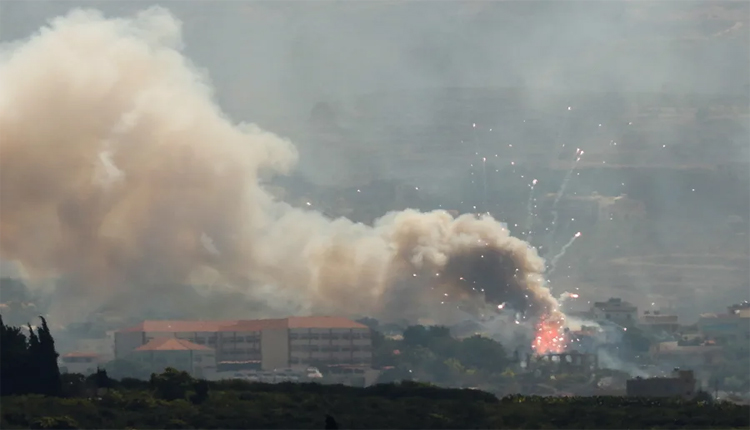New Delhi: Israeli airstrikes in Lebanon have dealt a significant blow to Hezbollah, with reports confirming the deaths of six individuals, including prominent commander Ibrahim Qubaisi. These attacks mark a major escalation in military action, with the Lebanese government stating that this level of aggression is unprecedented since the 2006 conflict.
Israeli forces have been relentlessly bombarding Beirut and surrounding areas, targeting Hezbollah’s infrastructure in what Israel has dubbed Operation ‘Northern Arrows.’ According to Israeli officials, the operation aims to safeguard northern Israel by dismantling Hezbollah’s military capabilities along the border.
The Israeli Defense Forces (IDF) have claimed responsibility for over 1,600 airstrikes throughout Lebanon, focusing on destroying Hezbollah command posts, missile launch sites, weapons warehouses, and rocket factories. Reports indicate that more than 800 Hezbollah launch sites have been neutralised, effectively crippling the group’s capacity to launch attacks against northern Israeli cities.
The loss of Qubaisi is particularly significant for Hezbollah, as he was a key figure within the organisation. Additionally, there are unconfirmed reports regarding the death of Ali Karaqi, the head of Hezbollah’s Southern Command, who was described as the group’s third-in-command. Hezbollah has publicly denied these claims, asserting that Karaqi is alive and safe.
Israeli Defense Minister Yoav Gallant stated that only Hassan Nasrallah remains among Hezbollah’s top leadership, suggesting that the organisation has suffered substantial losses. The airstrikes have reportedly destroyed about 50% of Hezbollah’s rocket arsenal, with over 500 fatalities and around 1,700 injuries attributed to the ongoing attacks.
The situation remains tense as Israel aims to eliminate the perceived threat posed by Hezbollah’s operations along its northern border. The Lebanese government, meanwhile, condemns these strikes as a catastrophic escalation, with citizens and officials alike grappling with the repercussions of the intensified conflict.



Comments are closed.